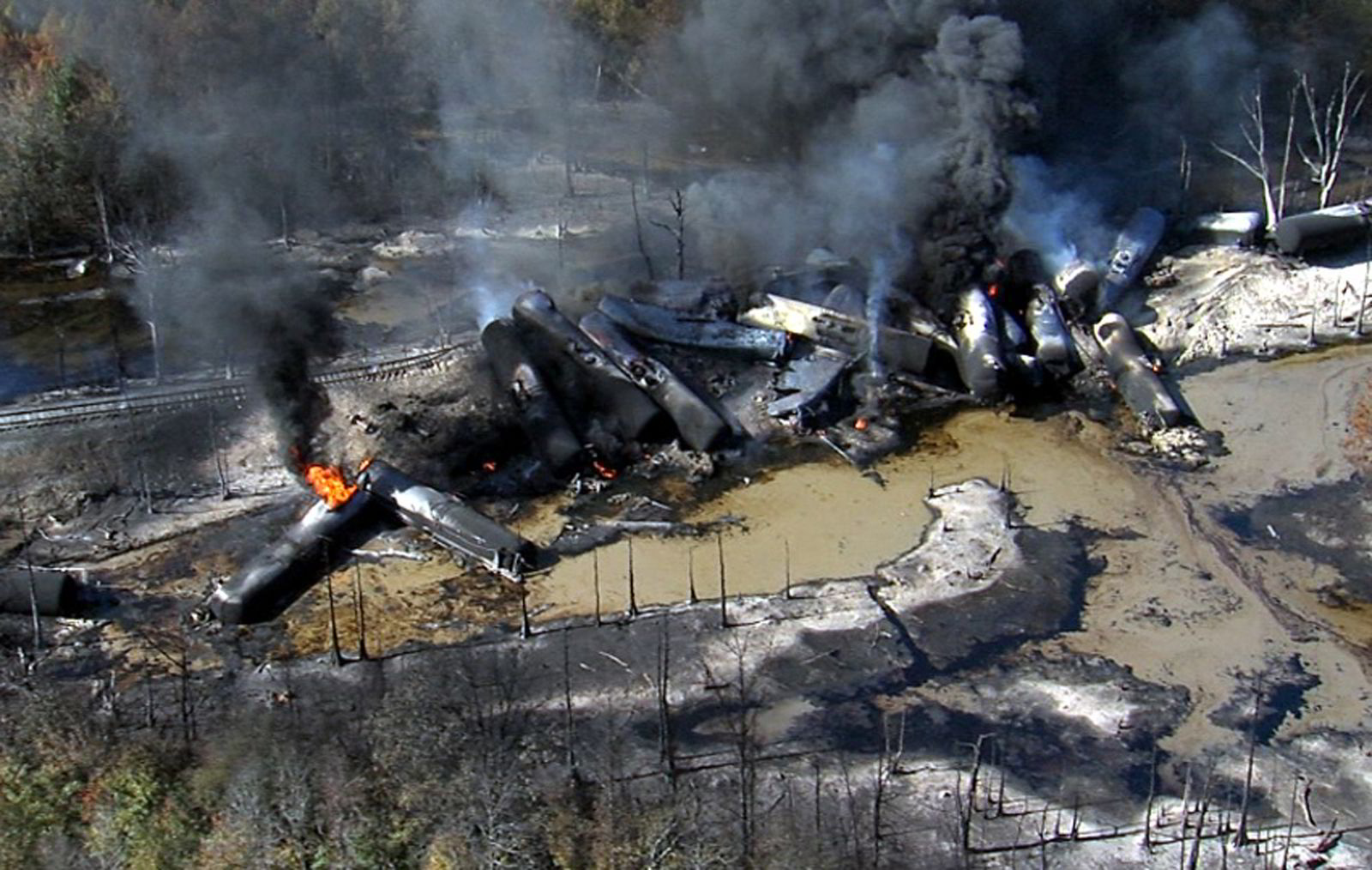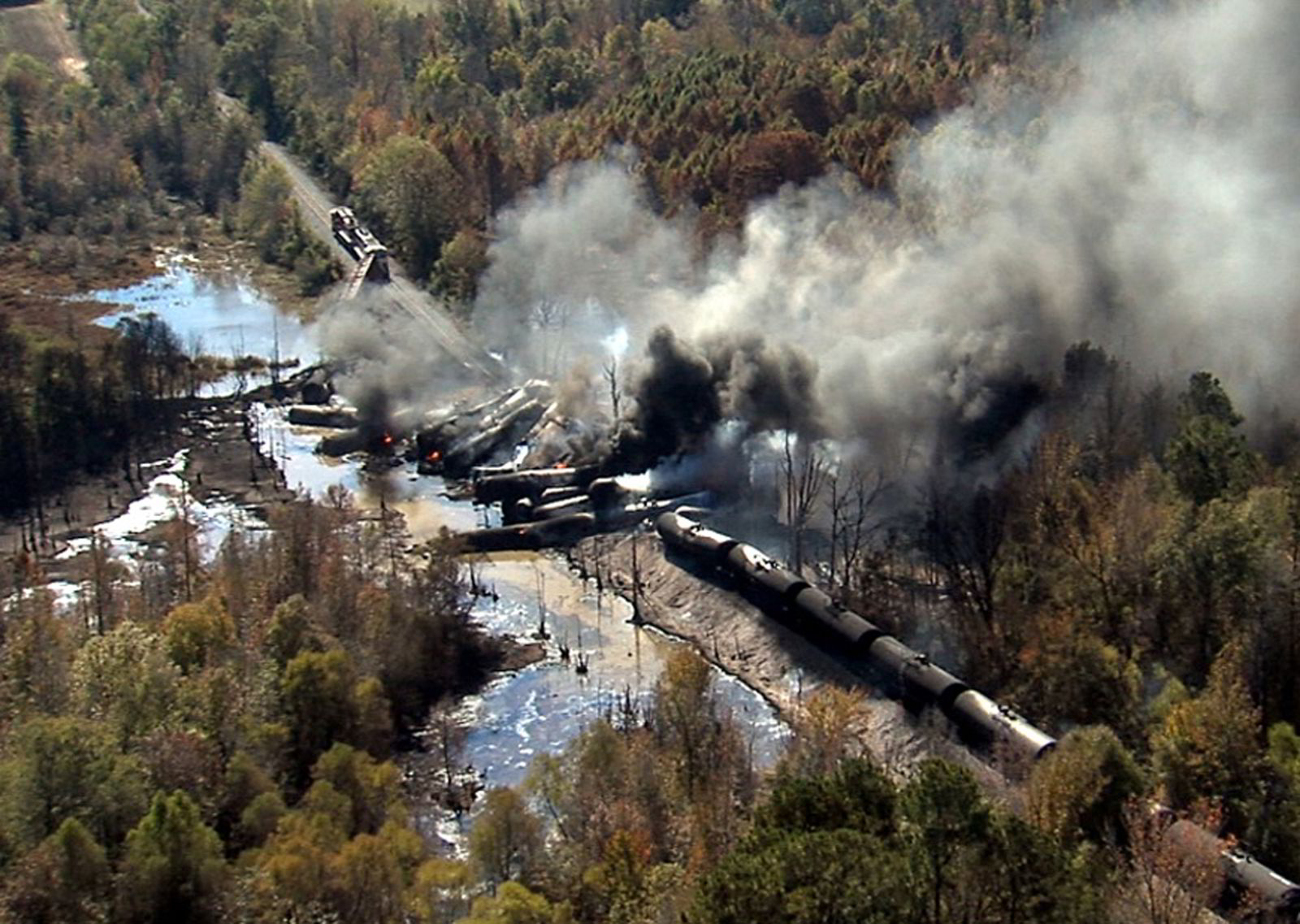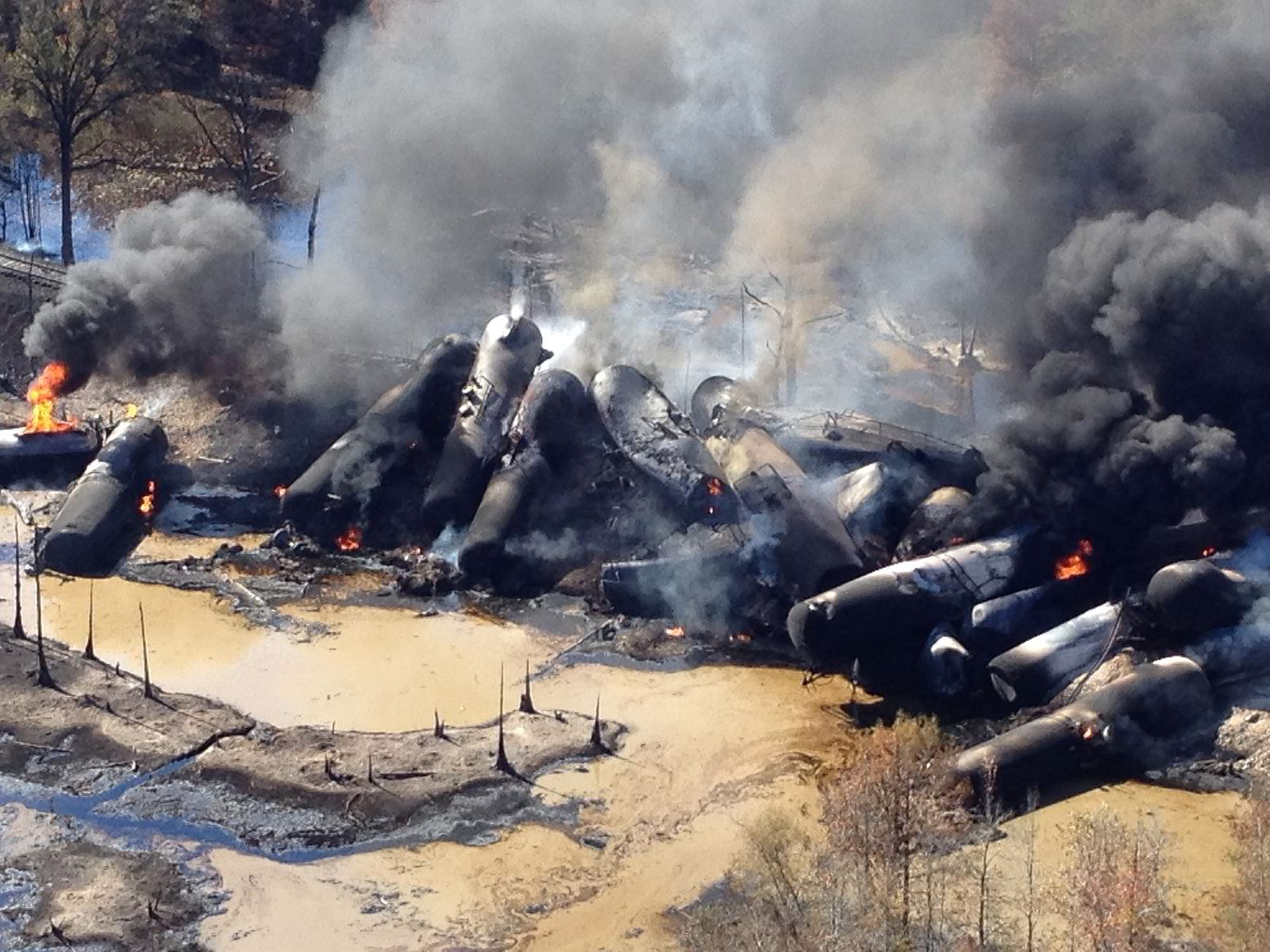Within hours of the accident early Friday morning, operator Genesee & Wyoming had already ruled out many of the factors cited in the deadly Lac Megantic disaster, where a runaway train careened into the center of town, bursting into a fireball that killed 47 people and levelled buildings, Reuters reported.
The train in Alabama was travelling on relatively flat terrain at below the 40 miles per hour limit, not parked atop an incline where brake failure may have been an issue.
The tank cars on the 90-car Genesee train were T108s, not DOT-111s, which have been faulted by regulators. An industry-standard two engineers were driving it, not one as in Canada.
Both trains carried North Dakota crude, a type that tends to be very low-density or 'light', meaning it contains more volatile compounds that may account for its explosive properties. But that doesn't explain why the train derailed.
With no apparent extenuating circumstances, experts said investigators would likely be looking hard at the condition of the tracks themselves, noting that short-line railroads like the one in Alabama have become critical final links in the thriving oil-by-rail trade -- but can suffer from neglect.
Just days before the accident, in fact, Genesee executives had talked to analysts about the challenges of upgrading the assets they inherited a year ago after buying RailAmerica, becoming the country's largest short-line railroad operator.
"As we continue to systematically assess the former RailAmerica properties, we found conditions and facilities and track at several railroads that are not up to G&W standards for safety and service," president and CEO Jack Hellmann said on a conference call on Nov. 1. He said many of the problems had been fixed in August and September, but the company would spend another $1 million in the fourth quarter.
On Friday, that bill likely rose after nearly 30 cars of the 90-car crude oil train on the Alabama & Gulf Coast Railway - one of the 45 former RailAmerica lines Genesee bought for $1.4 billion - derailed in western Alabama. Some dozen of the cars went up in flames that only finally died down by Sunday in the most dramatic US accident since the oil-by-rail boom began. No one was injured or killed.
By Sunday afternoon, workers were in the process of removing the cars that derailed and cleaning up the site. Contractors were on hand to investigate the site, Bill Jasper, president of the regional line, told Reuters.
It is unclear what caused Friday's derailment and blast, or even whether the Alabama & Gulf Coast Railway was one of the lines that Hellmann had deemed problematic. Jasper, who took the job in April, said the new owners had made some improvements to the "track structure".
But Friday's incident is likely to increase the focus on the safety of booming oil-by-rail freight, raising the risk of tougher standards or costlier regulations that may eat into operators or rail shippers margins.
From next to nothing four years ago, railways now transport nearly one-tenth of U.S. crude output, or around 800,00 barrels per day.
Russ Quimby, a retired National Transportation Safety Board investigator and a rail consultant, said that while more profitable mainline railroads had been able to invest in their infrastructure, smaller branch lines had been caught off-guard.
"The little railroads, they're still trying to catch up, but they have become in many cases vital links because of the increase in traffic," he said.
Genesee said the derailment "occurred in the vicinity of a 60-foot-long, 10-foot-high wooden trestle."
Quimby noted that wooden structures like trestles -- or bridges -- are particularly vulnerable in southern states. The trestles often traverse marshy, humid areas or rivers, leaving them open to attack from rot, insects and fungus.
But Alabama & Gulf Coast Railway's Jasper told Reuters that there was no indication that the trestle was a cause.
"It's just a coincidence that it was in the proximity of the trestle," he said, adding that it was a very short bridge and the exact point of the derailment was still unclear.



